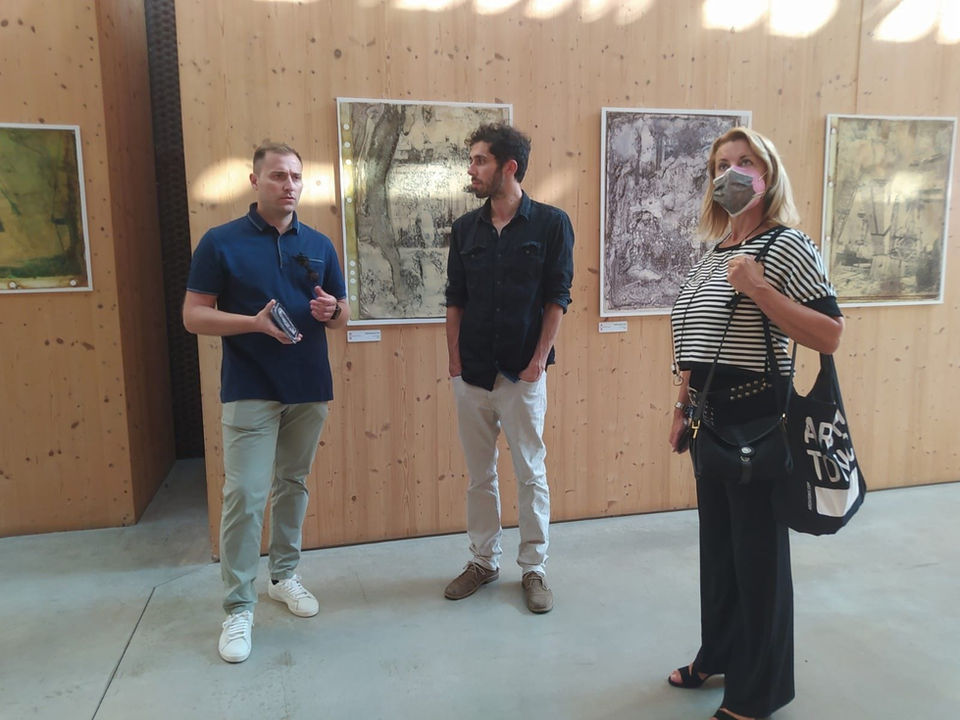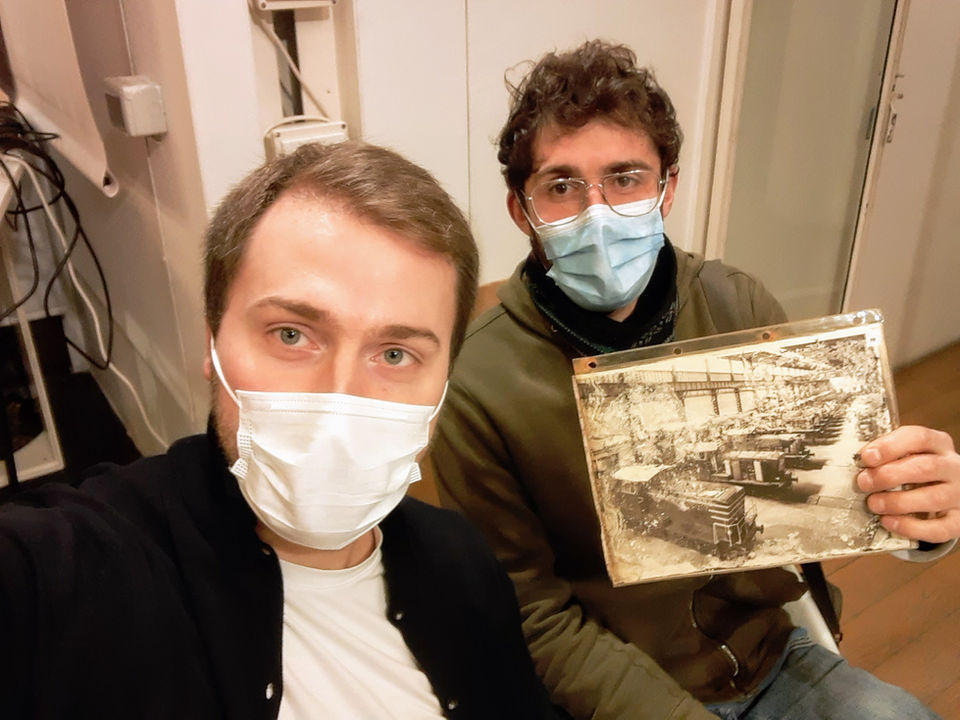SCOPRI I PROSSIMI EVENTI


180
Photos
found again

60
Images with the presence of workers

170
Years of factory activity
Officine Reggiane
WHY RES DERELICTAE?

THE BIRTH OF THE PROJECT
The birth of this project is completely the result of chance: it all began in the summer of 2019, following the fortuitous discovery of photographic material in a state of abandonment, lying in the underground rooms of the Ex Archivio delle Officine Reggiane. After 10 years from the evacuation of the Officine Meccaniche Reggiane archive, we went down to the basement of the factory and found these treasures.

INDUSTRIAL PHOTOGRAPHY
The photographs, exposed to contact with external agents, have undergone a process of deterioration that has largely changed their appearance, giving rise to unintentional abstract compositions, in which there are still photographic elements that allow us to recognize the original subject: the man, the factory and technology. this is therefore the narrative that the place makes of himself, through what is left lying on the bottom, reworking in a completely autonomous his memoire.

JOLIE LAIDE
The dissolution of the pigments, the action of molds and the partial maceration of the paper intervene as random ornaments of time: an "invisible hand", refined and skillful, capable of embellishing what has been abandoned (and forgotten). This extraordinary process has given rise to an unprecedented photographic iconography Jolie Laide [march and sublime], suspended between the dreamlike and the surreal, capable of snatching from oblivion the fragments of the memory of a symbolic place of the social history of the 20th century. and to return them to us with a shocking aesthetic and visual power.
Res Derelictae
legal institution of Roman law according to which ownership of movable property which are not the property of anyone you buy with the occupation.
In the 1940s, the Reggiane were one of the places in the city most affected by the war.
In the 1950s they were a symbol of conflict in the world of work.
Today, in a globalized world, with the abandonment and informal occupation by numerous homeless migrants, Officine Reggio Emilia has become a place of social conflict.
Among the 180 photographs found, the presence of a common denominator is striking: the workers of the Ex Officine Reggiane. The images of the workers are thrown out of the context of the vintage photo as if to suggest an impossibility of oblivion of that industrious humanity that once populated these spaces.
This redefinition, the result of abandonment, the work of time, can be symbolically related to the life of the factory from the moment the photographs were taken to today.
Numerous questions are raised with the exhibition of these rediscovered images.
First of all: has the factory really stopped producing?
And consequently what are the current products?
How has the meaning of the factory changed since then?
What values has the 'Reggiane' place become a symbol of over time?
These are still open and current questions, through which it is possible to trace a common thread: conflict as an intrinsic element of transformation.
And again, can there be a "rotten and sublime" capital (photographic, artistic, human) to be rediscovered in an abandoned place?
What lies beneath the common sense of decay that covers the many possible narratives like a layer of stagnant water that prevents us from seeing beyond?
The factory continues to live and enrich the imagination of a city that observes itself in the making.

TEAM

Dario Tarasconi
Montecchio Emilia, 10.11.1988
He attended the High School of Social Sciences at the “Matilde di Canossa” Institute of Reggio Emilia, then the Faculty of Culture and Epistemology of Human Sciences at the Department of Linguistic and Cultural Studies of the University of Modena and Reggio Emilia.
His artistic career begins in the second half of the 2000s.
He exhibits in city spaces in his city and in 2017 participates in a group show at Palazzo Bentivoglio in Gualtieri (RE), exhibiting with local artists including Mario Pavesi.
In 2019 he was chosen among the emerging Italian artists by the Orler gallery for the Affordable Art Point project.
Lives and works in Reggio Emilia.

Andrea Scazza
Reggio Emilia, 04.09.1985
Graduated in Political Science from the University of Bologna, he specializes in Conflict Resolution at the Department of Peace Studies at Bradford University.
From the early 2000s he began to paint as a writer; since 2012 at the former Officine Reggiane together with other writers and street artists.
Participates in the organization of pictorial jams in various places in the city and at the former Officine Reggiane, including the 'Jam R60' on the occasion of the anniversary of the occupation of the factory.
Collaborate with educational projects through the use of painting and graffiti.
Lives and works in Reggio Emilia.































_edited.png)
























































